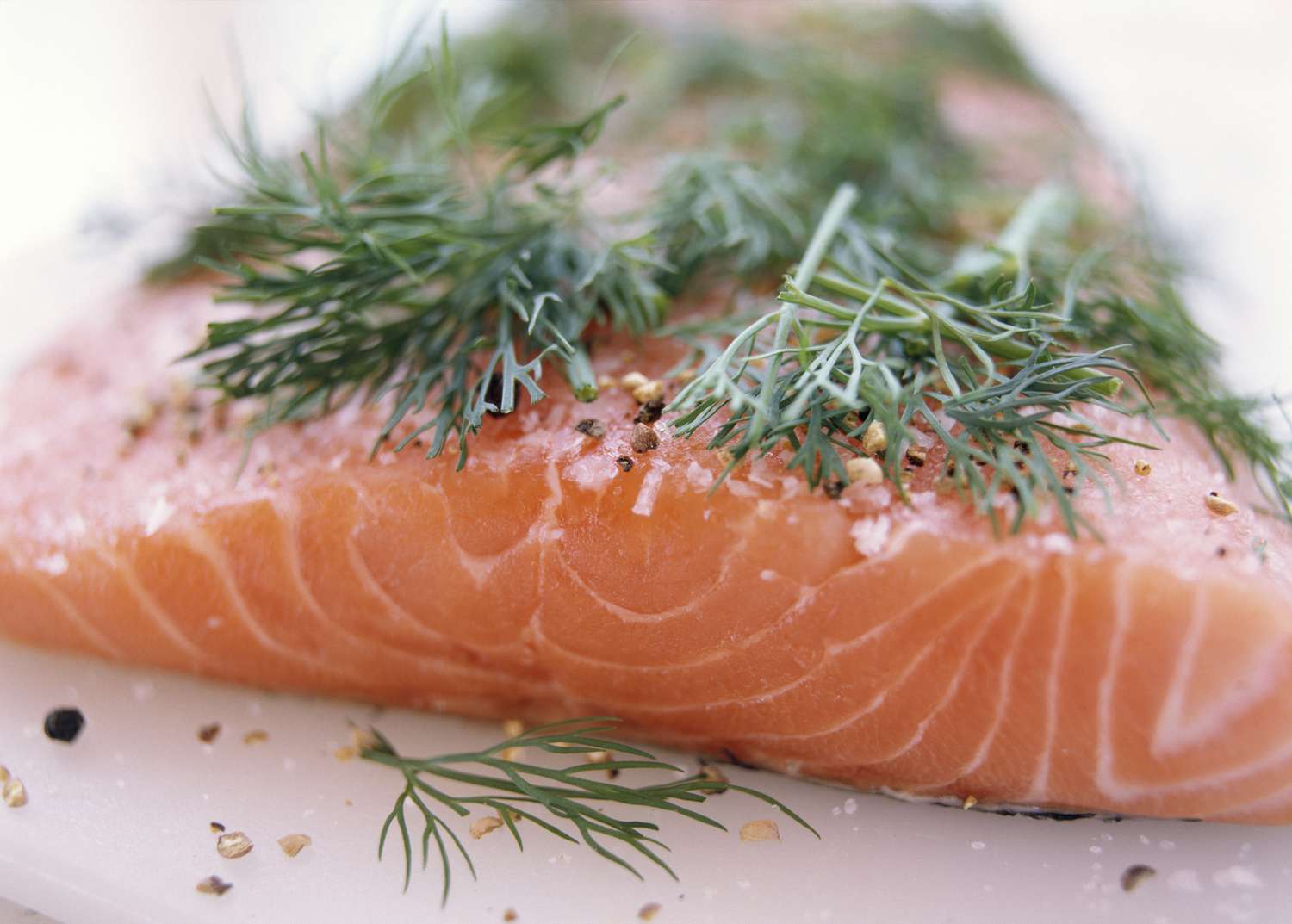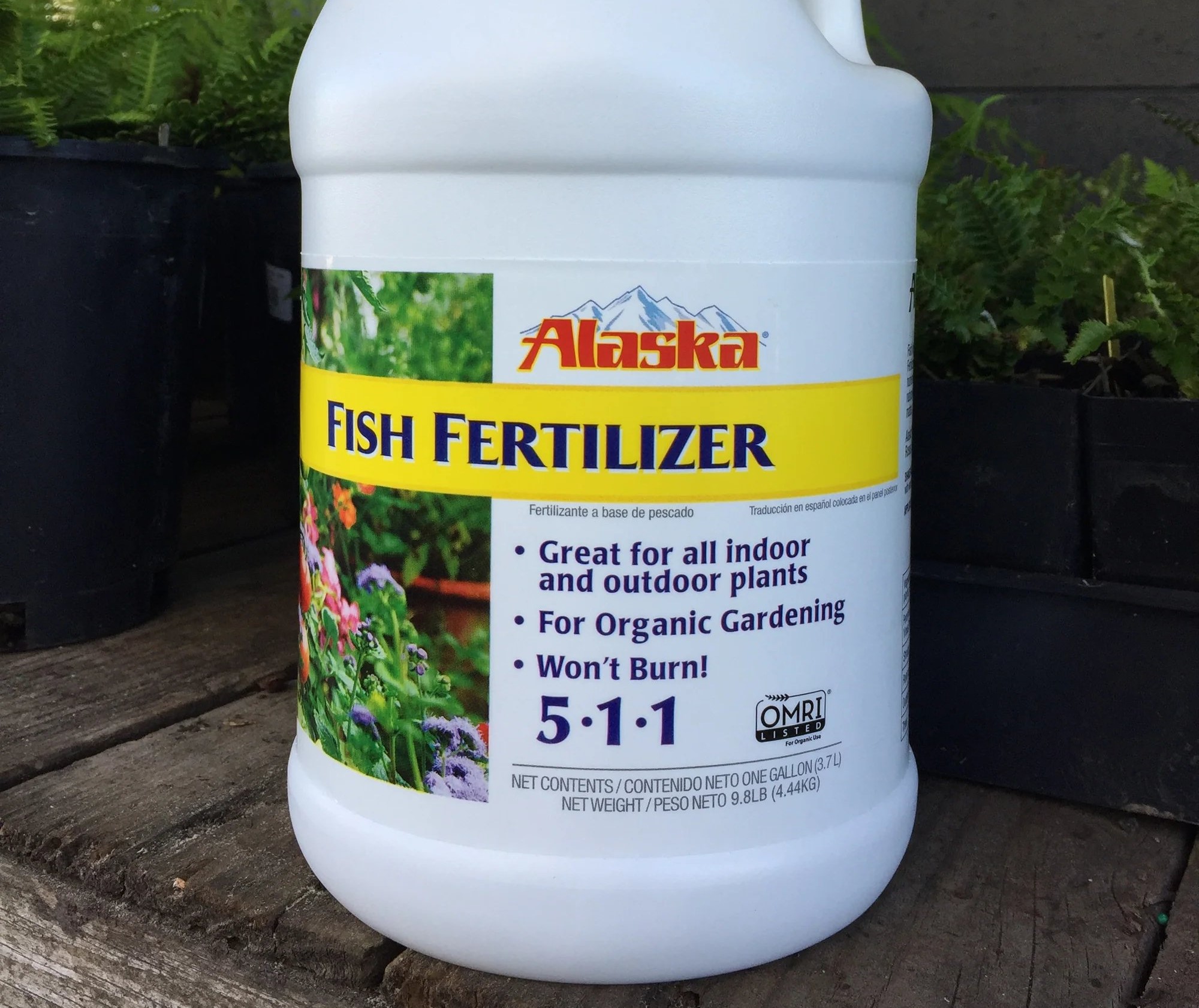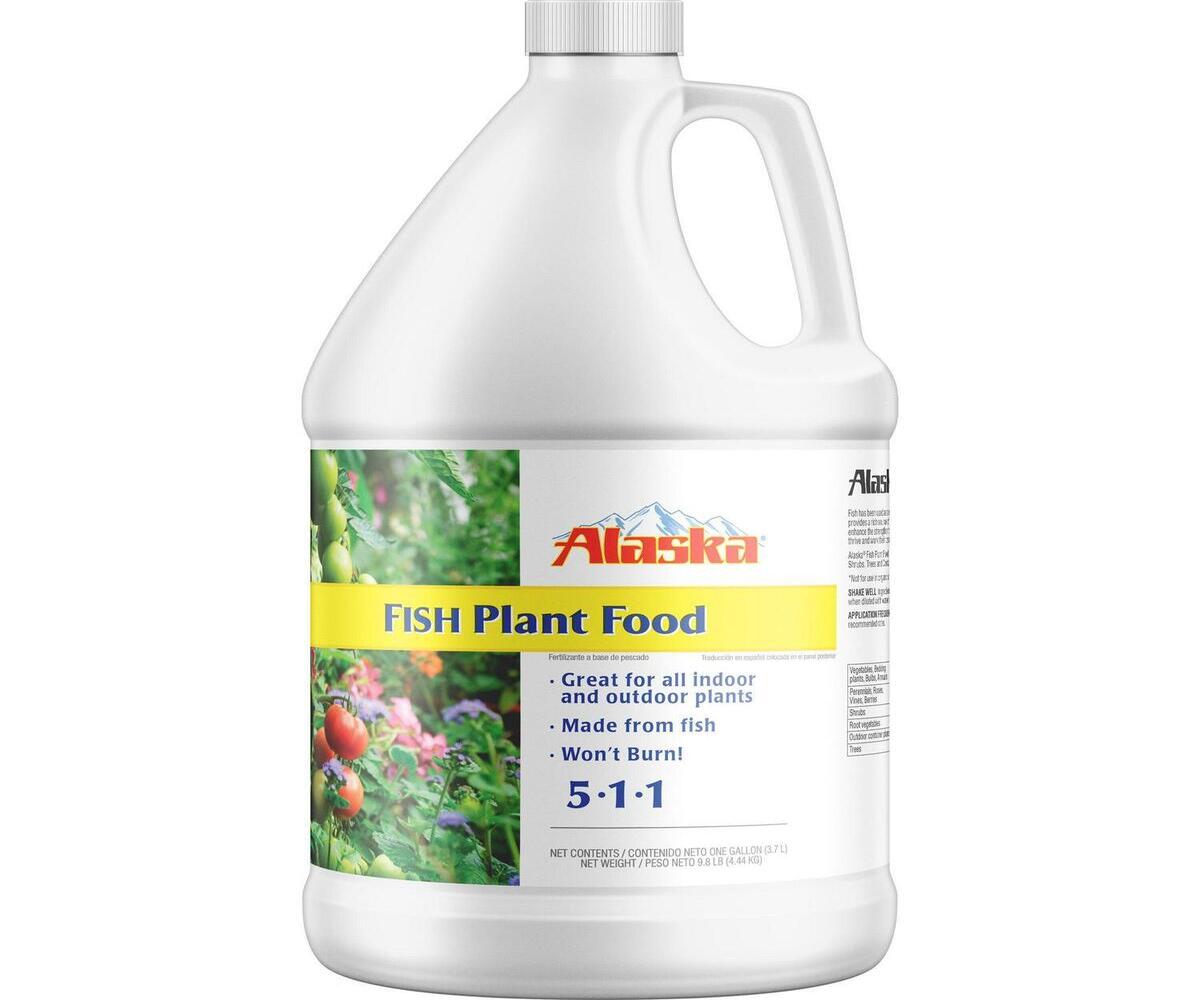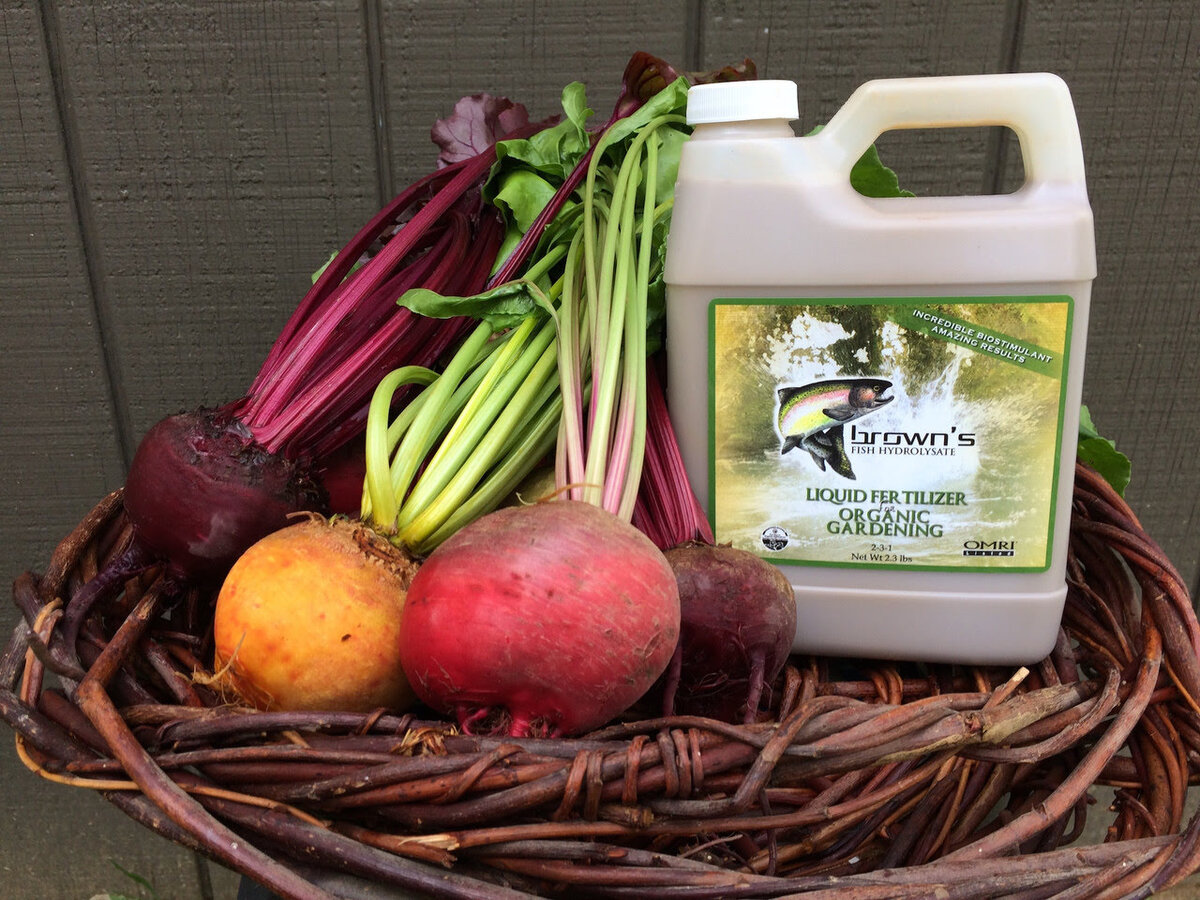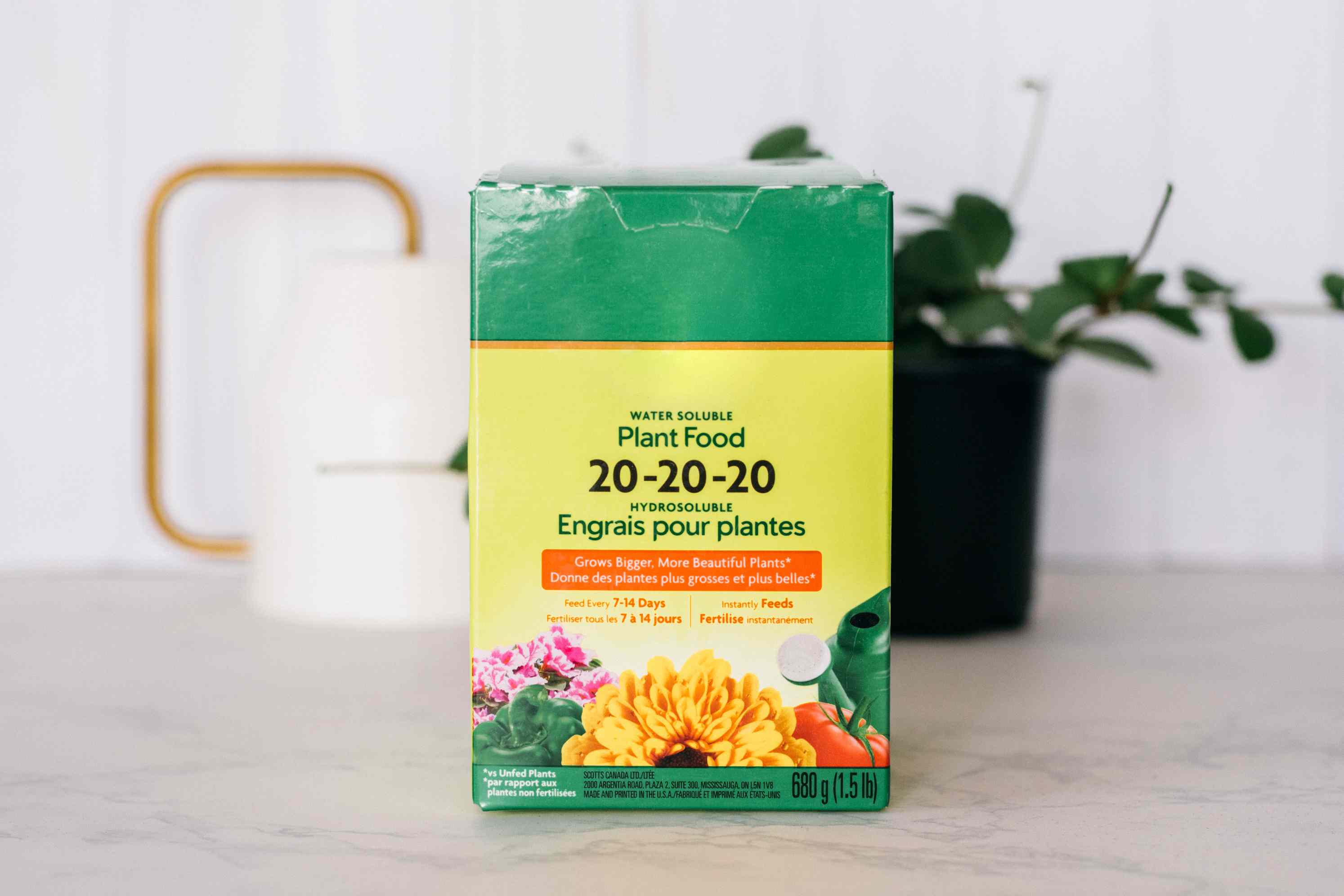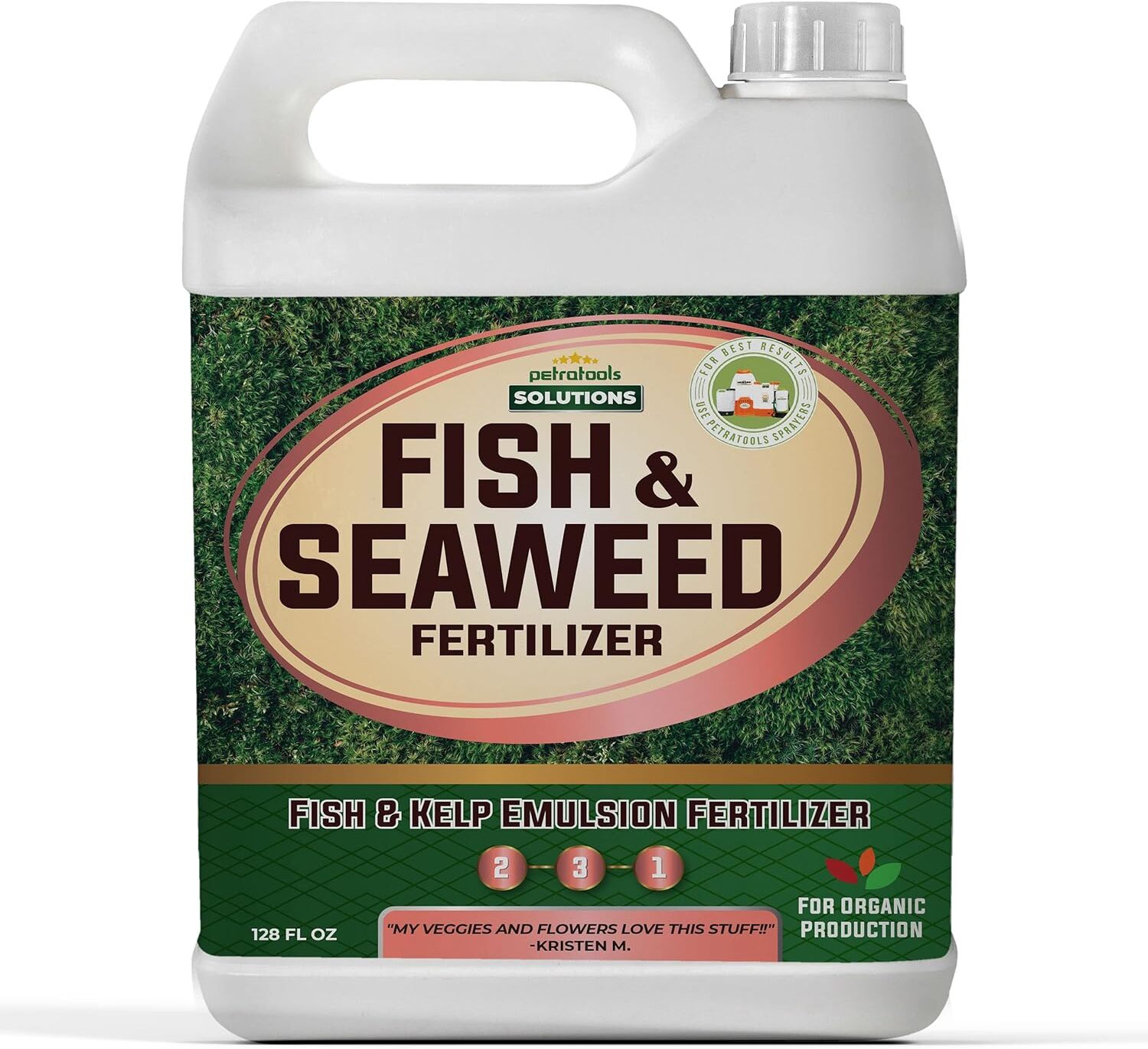Home>Gardening Techniques>What Does Fish Fertilizer Do For Plants
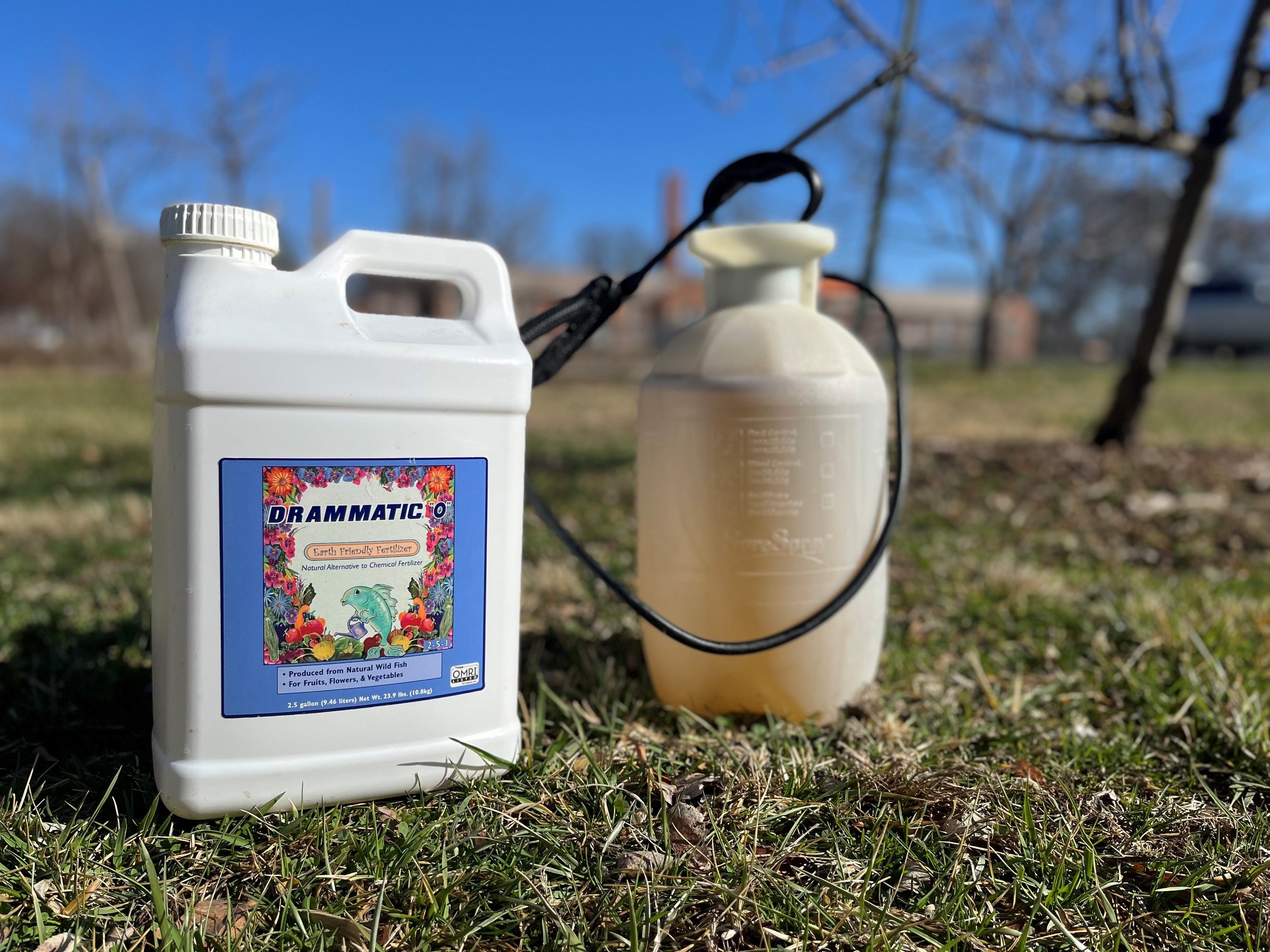

Gardening Techniques
What Does Fish Fertilizer Do For Plants
Modified: January 22, 2024
Discover the benefits of fish fertilizer for plants and learn how it enhances plant care. Improve growth, health, and yield with this natural plant food.
(Many of the links in this article redirect to a specific reviewed product. Your purchase of these products through affiliate links helps to generate commission for Chicagolandgardening.com, at no extra cost. Learn more)
Table of Contents
- Introduction
- Benefits of Fish Fertilizer for Plants
- Nutrient Content in Fish Fertilizer
- Improving Soil Health with Fish Fertilizer
- Enhancing Plant Growth and Development
- Stimulating Flowering and Fruit Production
- Boosting Plant Resistance to Diseases and Pests
- Guidelines for Using Fish Fertilizer on Plants
- Potential Drawbacks and Limitations
- Conclusion
Introduction
When it comes to caring for plants, providing them with the necessary nutrients is essential for their health and vitality. While there are various types of fertilizers available in the market, one type that stands out for its numerous benefits is fish fertilizer. Fish fertilizer is derived from the remains of fish or fish byproducts and is an organic and sustainable option for providing plants with essential nutrients.
In recent years, fish fertilizer has gained popularity among gardeners and plant enthusiasts due to its effectiveness and eco-friendly nature. It offers a wide range of benefits that contribute to the overall well-being of plants, from improving soil health to enhancing growth and development. Additionally, fish fertilizer is a natural solution that reduces the need for synthetic chemicals, making it a suitable choice for those practicing organic gardening.
In this article, we will delve into the benefits of fish fertilizer for plants, examine its nutrient content, explore how it improves soil health, stimulates growth, and boosts plant resistance to diseases and pests. We will also discuss guidelines for using fish fertilizer and highlight any potential drawbacks or limitations to consider.
Whether you’re an experienced gardener or a novice plant enthusiast, understanding the advantages of fish fertilizer can be invaluable in optimizing plant care and ensuring a thriving and vibrant garden. So, let’s dive in and explore the wonders of fish fertilizer and how it can help your plants reach their full potential!
Benefits of Fish Fertilizer for Plants
Fish fertilizer offers numerous benefits that contribute to the overall health and vigor of plants. Let’s explore some of the key advantages of using fish fertilizer:
- Rich in Nutrients: Fish fertilizer is packed with essential nutrients such as nitrogen, phosphorus, and potassium, also known as NPK. These nutrients are vital for plant growth and development. Additionally, fish fertilizer contains trace elements like calcium, magnesium, and iron, which are necessary for various metabolic processes within plants.
- Slow-Release Formula: Unlike synthetic fertilizers that release nutrients rapidly, fish fertilizer provides a slow-release of nutrients, ensuring a steady supply over an extended period. This slow-release mechanism helps prevent nutrient burn and minimizes the risk of overfertilization.
- Promotes Beneficial Microorganisms: Fish fertilizer contains beneficial microorganisms that improve soil health. These microorganisms break down organic matter in the soil, releasing nutrients and making them more readily available for plant uptake. They also enhance soil structure, allowing for better water retention and aeration.
- Improves Soil Fertility: By adding fish fertilizer to the soil, you can increase its fertility. The nutrients and organic matter present in fish fertilizer enrich the soil, enhancing its overall nutrient content and supporting the growth of beneficial organisms. This, in turn, promotes healthy root development and improves nutrient uptake by plants.
- Stimulates Overall Growth: Fish fertilizer provides plants with a balanced blend of nutrients, promoting healthy foliage and stem growth. It encourages the production of chlorophyll, the pigment responsible for photosynthesis, leading to stronger and more vibrant plants.
- Enhances Flowering and Fruit Production: The trace elements present in fish fertilizer play a crucial role in stimulating flowering and fruit development. These elements contribute to the formation of essential plant hormones, facilitating the production of abundant flowers and increasing fruit yield.
- Boosts Plant Resistance: Fish fertilizer helps plants build a natural defense against diseases and pests. The nutrients and microorganisms present in fish fertilizer strengthen plant cell walls and enhance their ability to resist the invasion of pathogens and pests.
These benefits of fish fertilizer make it an excellent choice for promoting healthy plant growth, improving soil fertility, and increasing overall plant resilience. Incorporating fish fertilizer into your plant care routine can significantly enhance the success and productivity of your garden.
Nutrient Content in Fish Fertilizer
Fish fertilizer is a nutrient-rich organic option that provides plants with a plethora of essential elements needed for their growth and development. Let’s take a closer look at the nutrient content of fish fertilizer:
Nitrogen (N): Fish fertilizer is typically high in nitrogen content, which is essential for promoting lush foliage and leaf production. Nitrogen is a vital component of amino acids, proteins, and chlorophyll, all of which are critical for plant growth. Having an adequate supply of nitrogen ensures healthy and vibrant plants.
Phosphorus (P): Phosphorus is necessary for energy transfer within plants and plays a vital role in root development, flowering, and fruit production. Fish fertilizer contains a good amount of phosphorus, ensuring that plants have the necessary nutrients to produce robust roots and bountiful blooms.
Potassium (K): Potassium, often referred to as potash, is crucial for overall plant health. It helps regulate water uptake, improves disease resistance, and enhances the efficiency of nutrient absorption. Fish fertilizer provides a decent amount of potassium, allowing plants to thrive and withstand environmental stresses.
Calcium (Ca), Magnesium (Mg), and Other Trace Elements: In addition to the primary macronutrients, fish fertilizer contains calcium, magnesium, and other trace elements that are essential for various metabolic processes within plants. These elements contribute to the formation of cell walls, enzyme activation, and the synthesis of crucial plant hormones.
One of the advantages of fish fertilizer is that it is a natural and organic source of these nutrients. Unlike synthetic fertilizers that can be harsh on plants and the environment, fish fertilizer provides a well-balanced blend of nutrients in a form that is easily absorbed and used by plants.
It’s important to note that the nutrient content of fish fertilizer can vary depending on the source and production methods. Different fish species and processing techniques can affect the nutrient composition. Therefore, it is essential to check the label or product specifications to ensure the desired nutrient ratios for your specific plants.
By incorporating fish fertilizer into your plant care regimen, you can be confident that your plants are receiving the essential nutrients they need for optimal growth and development. The nutrient-rich composition of fish fertilizer makes it an ideal choice for nourishing your plants in an organic and sustainable way.
Improving Soil Health with Fish Fertilizer
Healthy soil is the foundation for thriving plants, and fish fertilizer can significantly contribute to improving and maintaining soil health. Let’s explore how fish fertilizer benefits the soil:
- Increase in Organic Matter: Fish fertilizer is an excellent source of organic matter. When applied to the soil, it breaks down gradually, adding organic material that enriches the soil structure and enhances its overall fertility. This improves nutrient retention, water-holding capacity, and promotes a healthy environment for beneficial microorganisms.
- Enhancement of Soil Structure: The organic matter in fish fertilizer helps improve soil structure. It acts as a binding agent, promoting the formation of stable aggregates that create pore spaces in the soil. This allows for better root penetration, water infiltration, and the exchange of gases, ensuring a well-drained and aerated soil environment.
- Nutrient Release and Availability: Fish fertilizer contains beneficial microorganisms that aid in the breakdown of organic matter and the release of nutrients present in the soil. These microorganisms, such as bacteria and fungi, mineralize organic compounds, making nutrients more available for plant uptake. This improves nutrient efficiency and reduces the risk of nutrient leaching.
- Promotion of Beneficial Soil Microorganisms: Fish fertilizer introduces beneficial microorganisms into the soil, fostering a diverse and thriving soil ecosystem. These microorganisms contribute to the decomposition of organic matter, nutrient cycling, and the suppression of harmful pathogens. They also produce substances that stimulate plant growth and enhance overall plant health.
- Reduction of Soil Erosion: By improving soil structure and promoting vegetation growth, fish fertilizer helps reduce soil erosion. The enhanced soil structure prevents runoff and allows water to penetrate into the soil, reducing the risk of soil erosion from heavy rainfall or irrigation.
- Stimulation of Earthworm Activity: Earthworms are important soil-dwelling organisms that play a significant role in soil health. Fish fertilizer attracts earthworms, providing them with a nutrient-rich food source and creating an environment where they thrive. The earthworms, in turn, contribute to soil aeration, nutrient cycling, and the breakdown of organic matter.
The use of fish fertilizer not only provides plants with essential nutrients but also contributes to the long-term improvement of soil health. By enhancing soil structure, promoting beneficial microorganisms, and increasing organic matter content, fish fertilizer creates a favorable environment for healthy plant growth and overall soil vitality.
When applying fish fertilizer to the soil, it’s important to follow the recommended guidelines to ensure proper dosage and application. By doing so, you can maximize the benefits and create a sustainable and nourishing soil ecosystem that supports the growth and development of your plants.
Enhancing Plant Growth and Development
Fish fertilizer is a natural and effective solution for enhancing the growth and development of plants. Let’s explore how fish fertilizer contributes to the overall health and vitality of plants:
- Stimulates Root Growth: The nutrients present in fish fertilizer, such as nitrogen, phosphorus, and potassium, play a crucial role in promoting strong and healthy root development. A robust root system allows plants to effectively absorb water and nutrients from the soil, leading to improved plant growth and overall vigor.
- Encourages Lush Foliage: The balanced nutrient composition of fish fertilizer, particularly the high nitrogen content, promotes vigorous foliage growth. Nitrogen is an essential component of amino acids and chlorophyll, which are essential for photosynthesis. By providing an adequate supply of nitrogen, fish fertilizer helps plants produce lush, green foliage.
- Facilitates Photosynthesis: Chlorophyll, the pigment responsible for photosynthesis, is crucial for the production of plant sugars and energy. Fish fertilizer, with its nutrient-rich formula, helps plants synthesize chlorophyll, improving their ability to harness sunlight and convert it into usable energy. This leads to enhanced growth and overall plant health.
- Promotes Strong Plant Structure: Fish fertilizer aids in the production of structural components within plants, such as cellulose and lignin. These components contribute to the strength and integrity of plant cell walls, resulting in more robust and upright plants. Strong plant structure allows plants to withstand environmental stresses and grow tall and healthy.
- Supports Hormone Production: The trace elements present in fish fertilizer, including calcium and magnesium, are essential for the synthesis and activation of plant hormones. These hormones regulate various growth processes, such as cell division, elongation, and flowering. By providing these trace elements, fish fertilizer helps plants maintain a healthy hormonal balance, leading to optimal growth and development.
- Promotes Overall Plant Health: The nutrients and organic matter present in fish fertilizer contribute to the overall health of plants. By providing plants with a balanced nutrient supply, fish fertilizer strengthens their immune system and increases their resistance to environmental stresses. This results in healthier plants that are better equipped to combat diseases, pests, and adverse growing conditions.
By incorporating fish fertilizer into your plant care routine, you can provide your plants with the necessary nutrients to thrive and reach their full potential. Whether you’re growing vegetables, flowers, or fruits, fish fertilizer can significantly enhance plant growth, improve foliage quality, and promote overall plant health.
Remember to follow the recommended application rates and guidelines when using fish fertilizer to ensure that you provide your plants with a balanced and appropriate nutrient supply. With the help of fish fertilizer, you’ll be amazed at how your plants flourish and exceed your expectations!
Stimulating Flowering and Fruit Production
Fish fertilizer plays a crucial role in promoting abundant flowering and maximizing fruit production in plants. Let’s explore how fish fertilizer contributes to the stimulation of flowering and fruit development:
- Supply of Essential Nutrients: Fish fertilizer provides plants with essential nutrients, including phosphorus and potassium, that are vital for flower and fruit formation. Phosphorus is responsible for energy transfer and plays a significant role in promoting flowering, while potassium aids in fruit development and quality.
- Promotes Hormonal Balance: The trace elements present in fish fertilizer, such as calcium and magnesium, are crucial for the synthesis and activation of plant hormones. These hormones are involved in the regulation of flowering and fruit-set processes. By providing these trace elements, fish fertilizer helps maintain a healthy hormonal balance, ensuring optimal flower and fruit production.
- Enhances Pollination: Fish fertilizer can attract pollinators, such as bees and butterflies, to the garden. The strong scent and attractiveness of fish fertilizer can increase pollinator activity, leading to improved pollination rates and higher fruit set in plants that require cross-pollination.
- Improves Nutrient Availability: The organic matter in fish fertilizer contributes to improving soil structure and nutrient availability. This enhanced nutrient availability ensures that plants have a steady supply of the necessary nutrients during flowering and fruiting stages. Adequate nutrient availability supports optimal plant growth, flower production, and fruit development.
- Increases Flower and Fruit Size: Fish fertilizer can contribute to larger and more vibrant flowers and fruits. The balanced nutrient composition of fish fertilizer, particularly the nitrogen content, promotes cell division and enlargement, resulting in larger and more visually appealing flowers. Additionally, the increased nutrient availability from fish fertilizer supports fruit development and leads to larger, juicier, and better-tasting fruits.
- Extends Flowering and Fruiting Period: Fish fertilizer prolongs the flowering and fruiting period in plants. By providing the necessary nutrients and promoting plant health, fish fertilizer ensures that plants continue to produce flowers and fruits over an extended period. This can result in a longer harvest season and increased yields.
Whether you’re growing ornamental plants for their beautiful blooms or cultivating fruit-bearing plants for a bountiful harvest, fish fertilizer can significantly enhance flowering and fruit production. The balanced nutrient supply, improved hormonal balance, and increased nutrient availability provided by fish fertilizer contribute to healthier and more productive plants.
Remember to apply fish fertilizer according to the recommended guidelines and dosage for optimal results. With the help of fish fertilizer, you can enjoy the sight of vibrant blooms and savor the taste of delicious, homegrown fruits straight from your garden!
Boosting Plant Resistance to Diseases and Pests
One of the significant advantages of using fish fertilizer is its ability to boost plant resistance to diseases and pests. Let’s explore how fish fertilizer aids in protecting plants from potential threats:
- Strengthening Plant Immune System: Fish fertilizer provides plants with a balanced blend of nutrients and organic matter, which promotes overall plant health. Healthy plants have a stronger immune system and are better equipped to resist diseases and pests. Fish fertilizer supports the production of compounds that help plants defend themselves against pathogens and insect attacks.
- Enhancing Cell Wall Integrity: The nutrients in fish fertilizer, such as calcium, contribute to the formation and strengthening of plant cell walls. Stronger cell walls act as a physical barrier, making it more challenging for pests to penetrate and damage plant tissues. Additionally, stronger cell walls can inhibit the entry and spread of certain pathogens.
- Encouraging Beneficial Microorganisms: Fish fertilizer contains beneficial microorganisms that play a significant role in supporting plant health. These microorganisms help create a diverse and thriving soil ecosystem, promoting the growth of beneficial bacteria and fungi. The presence of these beneficial microorganisms can outcompete harmful pathogens, preventing their establishment and reducing disease incidence.
- Improving Plant Nutrition: Optimal nutrition provided by fish fertilizer plays a crucial role in improving plant defense mechanisms. Well-nourished plants are more resistant to diseases and pests. By providing a balanced nutrient supply, fish fertilizer ensures that plants have the necessary resources to produce defensive compounds, such as phytochemicals and antioxidants, that deter pests and inhibit disease development.
- Reducing Stress: Fish fertilizer helps plants cope with environmental stresses, such as drought, temperature fluctuations, or poor soil conditions. When plants are under stress, their defenses may weaken, making them more vulnerable to diseases and pests. By improving overall plant health and resilience, fish fertilizer minimizes stress and strengthens plants’ ability to withstand and recover from stressful conditions.
- Deterrence and Repellent Effect: The strong scent of fish fertilizer can act as a deterrent or repellent for certain pests. The odor may mask the attractive scent of plants or confuse pests, reducing their ability to locate and feed on the plants. This can help protect plants from pest damage and decrease the risk of disease transmission by pests.
Incorporating fish fertilizer into your plant care routine can significantly enhance your plants’ natural defenses against diseases and pests. By promoting plant health, strengthening cell walls, encouraging beneficial microorganisms, and improving nutrient availability, fish fertilizer creates a resilient environment where plants can thrive.
While fish fertilizer can bolster plant resistance, it is important to note that it is not a guarantee against all diseases or pests. It is still essential to maintain good gardening practices, such as proper sanitation, regular monitoring, and timely intervention when necessary, to ensure optimal plant health and minimize the risk of pests and diseases.
By combining the use of fish fertilizer with other sustainable pest and disease management strategies, you can create a holistic approach that promotes plant health and cultivates a resilient garden.
Guidelines for Using Fish Fertilizer on Plants
Using fish fertilizer properly is key to maximizing its benefits and ensuring optimal plant growth and health. Here are some guidelines to follow when using fish fertilizer on your plants:
- Dilute Properly: Most fish fertilizers come in concentrated form. It is important to follow the instructions on the packaging and dilute the fertilizer according to the recommended ratio. Overdosing can lead to nutrient burn and potentially harm your plants.
- Apply at the Right Time: Apply fish fertilizer during the active growing season of your plants. This is typically in the spring or early summer when plants are actively putting out new growth. Avoid applying fish fertilizer during periods of dormancy or when the soil is extremely dry or waterlogged.
- Apply to Moist Soil: Before applying fish fertilizer, ensure that the soil is moist. This will help the fertilizer distribute more evenly in the root zone and minimize the risk of root burn. Water the soil thoroughly before and after applying the fish fertilizer to aid in nutrient absorption.
- Avoid Foliage Contact: To prevent any potential leaf burn or damage, avoid direct contact between the fish fertilizer and the foliage of the plants. Aim to apply the fertilizer around the base of the plants or directly into the soil, keeping it away from the leaves.
- Follow Recommended Application Rate: Different plants have varying nutrient requirements. It’s important to refer to the specific recommendations for the type of plants you are fertilizing. Be mindful of the recommended application rate and frequency to avoid overfertilization.
- Consider Soil Testing: Conducting a soil test can provide valuable information about the nutrient composition of your soil. This can help you determine if additional nutrients, beyond what fish fertilizer provides, are needed for optimal plant growth. Adjust your fertilizer application accordingly based on the soil test results.
- Store Properly: Properly store your fish fertilizer according to the manufacturer’s instructions. Keep it in a cool, dry place away from direct sunlight to prevent degradation of the nutrients. This will ensure that the fertilizer remains effective and ready for use when needed.
- Monitor Plant Response: Pay attention to how your plants respond to the fish fertilizer. Observe for any signs of nutrient deficiency or excess. Adjust the application rate or frequency if necessary, keeping in mind that it may take time for the plants to show a response to the fertilizer.
Following these guidelines will help you use fish fertilizer effectively and responsibly to promote healthy plant growth and development. Remember that each plant and garden is unique, so it’s important to tailor your fertilizer application to the specific needs of your plants.
By being attentive and proactive in your plant care, you can harness the benefits of fish fertilizer and create an environment where your plants can flourish and thrive.
Potential Drawbacks and Limitations
While fish fertilizer offers numerous benefits for plants and is generally considered safe and effective, it’s important to be aware of potential drawbacks and limitations. Here are some factors to consider:
- Odor: Fish fertilizer has a distinct and pungent smell due to its organic nature. Some people may find the odor unpleasant, particularly when applying it in confined spaces or near living areas. It’s important to consider the location and timing of application to minimize potential discomfort.
- Attracting Wildlife: The strong scent of fish fertilizer may attract wildlife, such as raccoons, rodents, or pets, to your garden. These animals may dig or disturb your plants in search of the source of the smell. Take precautions to protect your plants and secure the area if wildlife activity becomes an issue.
- Potential Environmental Impact: While fish fertilizer is generally environmentally friendly, it’s important to use it responsibly and avoid overapplication. Excessive use of any fertilizer, including fish fertilizer, can lead to nutrient runoff, which can negatively impact nearby water bodies and contribute to water pollution. Follow recommended application rates and guidelines to minimize the risk of environmental harm.
- Repellent Effect on Beneficial Insects: While fish fertilizer can repel certain pests, it may also have a deterrent effect on beneficial insects, such as pollinators or predatory insects. Take care to observe the impact on beneficial insect populations and consider alternative pest management options if necessary.
- Potential Allergies: Individuals with fish allergies should take caution when handling fish fertilizer, as it can trigger allergic reactions. It’s advisable to wear gloves and protective clothing when applying the fertilizer to minimize the risk of skin contact.
- Not Suitable for All Plants: While fish fertilizer is generally beneficial for most plants, there are exceptions. Some plants, such as those that naturally grow in acidic soil conditions or highly sensitive plants, may not respond well to fish fertilizer due to its nutrient composition. It’s essential to research the specific nutrient requirements of your plants and choose fertilizers accordingly.
- Quality and Source: The quality and sourcing of fish fertilizer can vary among brands and products. It’s important to choose a reputable brand that sources fish in a sustainable and environmentally responsible manner. Additionally, the nutrient content and processing methods may differ, so it’s advisable to read product labels and select a fish fertilizer that suits your specific needs.
- Cost: Compared to synthetic fertilizers, fish fertilizer may be more expensive. The premium price is typically due to its organic nature and sustainable sourcing. Consider your budget and evaluate the potential benefits against the associated cost when deciding to incorporate fish fertilizer into your plant care routine.
By being aware of these potential drawbacks and limitations, you can make informed decisions when using fish fertilizer and mitigate any adverse effects. Remember to read and follow the instructions provided by the manufacturer and consider the specific needs and characteristics of your plants and the environment in which you are using fish fertilizer.
Overall, fish fertilizer remains a valuable organic option for promoting plant growth and health, as long as it is used responsibly and in accordance with best practices.
Conclusion
As we reach the end of this article, it’s evident that fish fertilizer brings a multitude of benefits to plant care. From enhancing soil health and promoting plant growth to stimulating flowering and fruit production, fish fertilizer is proving to be a valuable tool for gardeners and plant enthusiasts alike.
The nutrient-rich composition of fish fertilizer provides plants with essential elements for optimal growth and development. Its slow-release formula ensures a steady supply of nutrients, reducing the risk of nutrient burn and overfertilization. Fish fertilizer also fosters a thriving soil ecosystem, improving soil structure and nutrient availability while promoting beneficial microorganisms.
Furthermore, fish fertilizer plays a significant role in improving plant resistance to diseases and pests. By strengthening plant immune systems, enhancing cell wall integrity, and encouraging beneficial microorganisms, fish fertilizer helps plants defend against potential threats.
However, it’s essential to be mindful of potential drawbacks and limitations associated with fish fertilizer. Factors such as the distinct odor, potential wildlife attraction, and environmental impact should be considered. Additionally, it’s important to factor in specific plant requirements and choose high-quality fish fertilizer from reputable sources.
By following guidelines for proper usage, such as diluting properly, applying at the right time, and monitoring plant response, you can harness the benefits of fish fertilizer effectively. While the cost of fish fertilizer may be higher compared to synthetic alternatives, its organic and sustainable nature makes it an attractive choice for those practicing organic gardening.
Incorporating fish fertilizer into your plant care routine provides a natural and eco-friendly solution that promotes healthy and vibrant plants. Whether you’re tending to outdoor gardens, indoor houseplants, or container plants, fish fertilizer can play a crucial role in creating a thriving and beautiful plant environment.
So, give fish fertilizer a try, and watch your plants flourish with improved growth, vibrant blooms, and bountiful harvests. Embrace this organic approach to plant care, embrace the wonders of fish fertilizer, and elevate your plant care practices to new heights!
